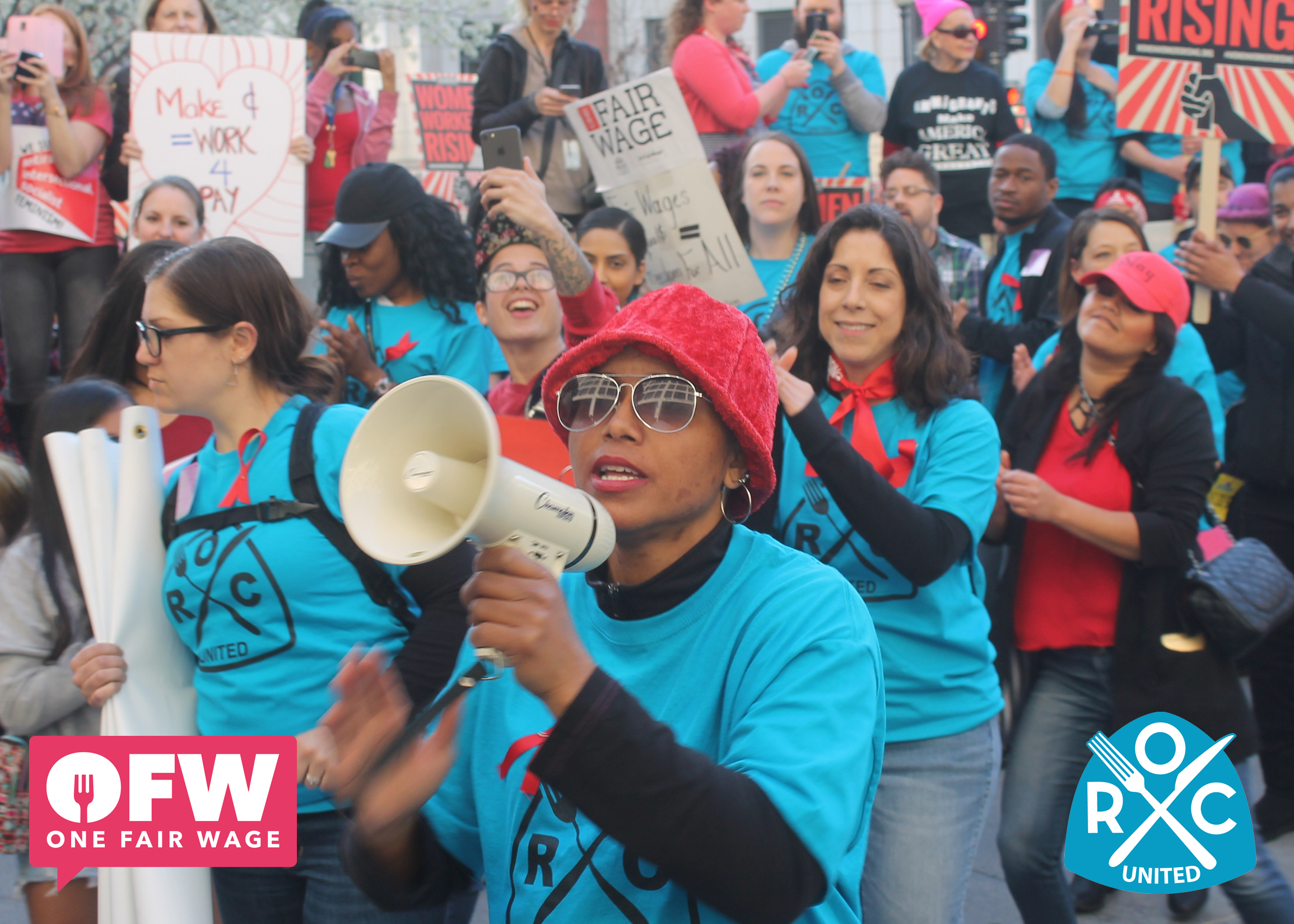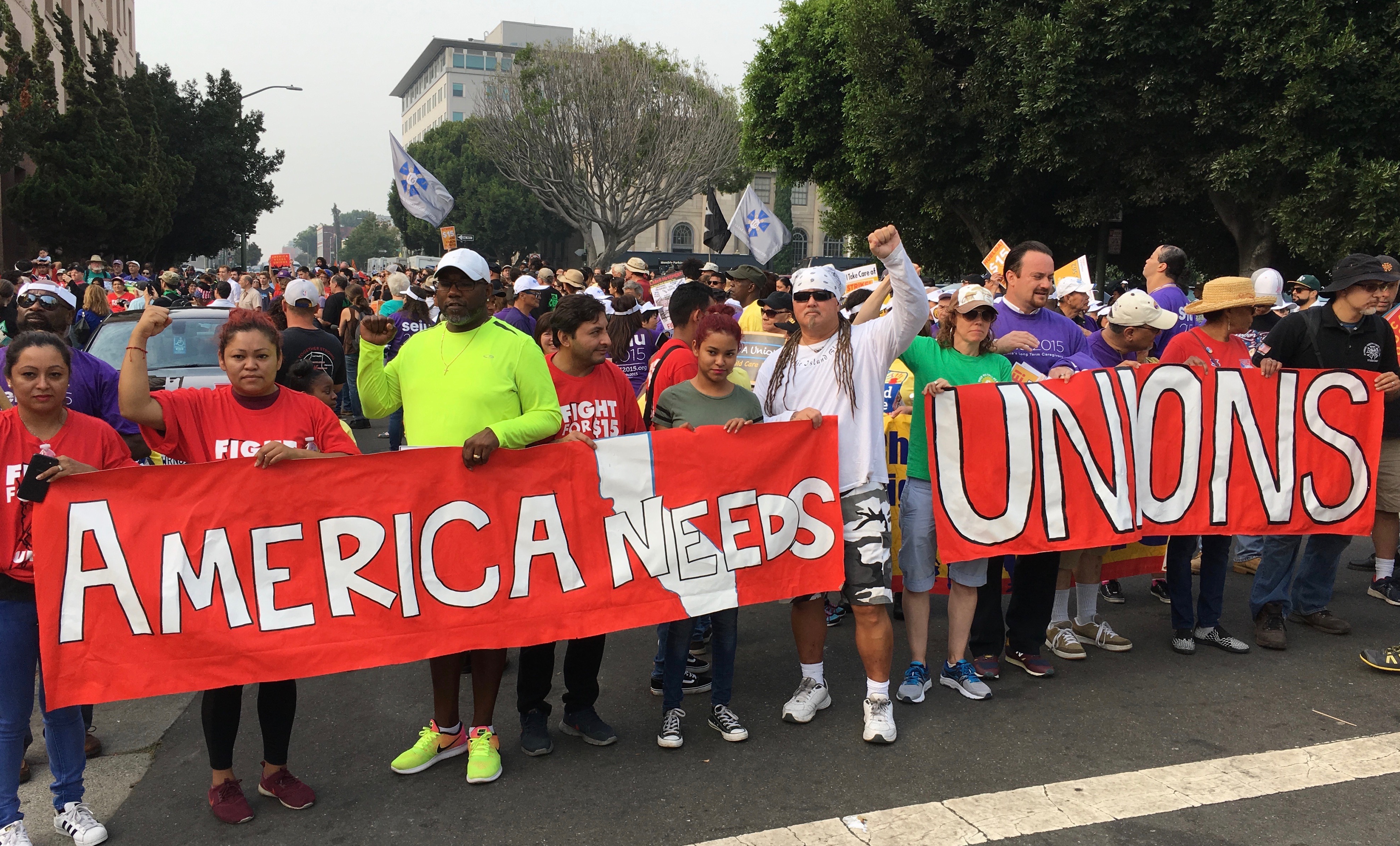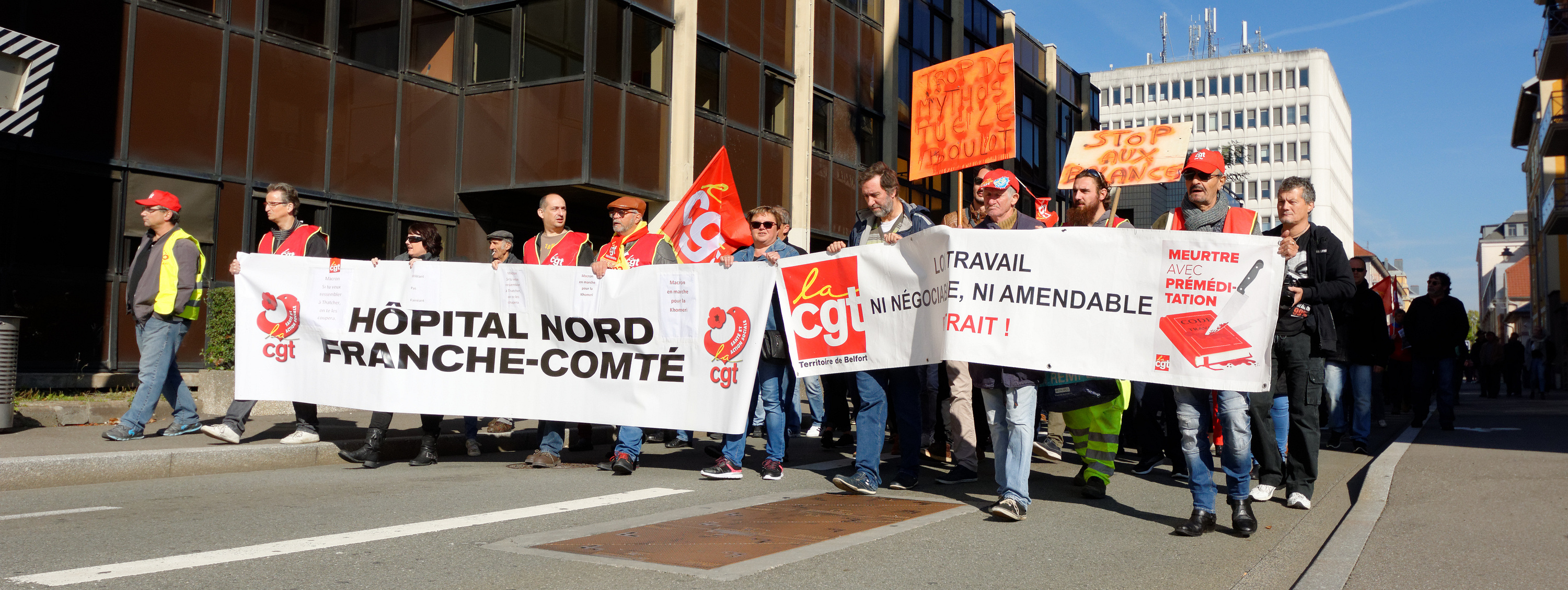Labor News Briefs
November 1, 2017
(This article first appeared in the November-December 2017 issue of the American Postal Worker magazine)

Photo courtesy of ROCU
Fighting for One Fair Wage For All
The federal minimum wage for tipped workers has not been increased in 25 years – and Restaurant Opportunities Center United (ROCU) launched a campaign to change that.
Back in 1991, the tipped-worker minimum wage rose from just $2.09 to $2.13 an hour, where it remains today. According to ROCU, this two-tier system has left nearly 4.5 million workers struggling to make ends meet on poverty wages.
In 43 states, the restaurant industry still follows the federal minimum wage for tipped workers, so servers, bussers, hosts and bartenders are forced to rely on tips to earn a living. This creates a number of problems:
- Although employers are legally required to “top off” a worker’s pay when tips don’t add up to at least the standard minimum wage ($7.25 federally), enforcement is scarce.
- The restaurant industry includes 7 of the 10 lowest paying jobs in the country. Servers are twice as likely to need food stamps than the rest of the workforce – and are three times as likely to live in poverty.
- The restaurant industry is the largest source of sexual harassment charges filed by women – with a rate five times higher than any other industry – according to The Equal Employment Opportunity Center. Since 70 percent of servers are women, they frequently are forced to put up with sexual harassment from cus- tomers, coworkers and managers in order to receive the necessary tips and shifts needed to pay the bills.
To stop this predatory behavior by the restaurant industry, ROCU kicked off the One Fair Wage campaign, dedicated to passing city and state legislation that would require the restaurant industry pay all workers – regardless of whether they are tipped or not – the same minimum hourly wage.
To get involved in a campaign near you, or for more information, visit OneFairWage.org.
British Postal Workers Vote Overwhelmingly for National Strike
As this issue went to press, 111,000 British postal workers were planning to walk off the job – as part of a long-running fight for a fair contract and improved service.
On Oct. 3, the Communication Workers Union (CWU) announced that nearly 90 percent of members voted “Yes” to industrial action against their employer, Royal Mail. The decision to strike was fueled by 18 painstaking months of contract negotiations.
Royal Mail quickly requested an injunction, or a court order, to stop the strike. On Oct. 12, the company’s bid was granted and the strikes planned for Oct. 19 and 20 were stalled. CWU officials assured members that the strike was not “cancelled…just postponed.”
Dave Ward, general Secretary of CWU said of the vote, “We asked our members to engage like never before and they did it. Make no mistake…this is about defining your service, a service we have been proud to deliver for many, many years.”
During negotiations, Royal Mail proposed massive cuts to workers’ pensions and benefits – along with service standard cuts. During the strike ballot initiative, management ran an anti-union campaign where workers were “bombarded” with advertisements on television, as well as on hand-held scanning devices used during deliveries, telling members to vote “No” on the strike ballot. Nevertheless, 73.7 percent of CWU members cast a ballot and 89.1 percent of those voted “Yes.”
“We are not just fighting for ourselves, we are fighting for a great public service,” Terry Pullinger, Deputy general Postal Secretary of CWU said. “It’s really important the public understands that this dispute is about broken promises and broken agreements.”

Fast Food Workers Hold Labor Day Protests in Over 300 Cities Worldwide
Striking fast food workers took to the streets in over 300 cities worldwide on Labor Day. They were striking for $15 an hour minimum wage and the right to unionize. Workers from other industries joined them in solidarity, including those in the health care, child care and transit.
Cities from coast-to-coast saw workers participate in the protests, including Atlanta, Austin, Birmingham, Boston, Buffalo, Charleston, Chicago, Cleveland, Detroit, Des Moines, Durham, Hartford, Kansas City, Las Vegas, Little Rock, Los Angeles, Memphis, Miami, Milwaukee, Minneapolis, New Orleans, Oakland, Philadelphia, Phoenix, Pittsburgh, Richmond, Sacramento, San Diego, St. Paul, St. Louis, Tampa and Tuscaloosa.
Workers in other countries also went on strike and protested in solidarity on Sept. 4, including Canada, France, Italy, Japan, Sweden and the United Kingdom. For more information, visit fightfor15.org.

Photo courtesy of Thomas Bresson
French Unions Protest Labor Reforms
Thousands of workers from all industries filled the streets of Paris throughout the month of September protesting President Emmanuel Macron’s labor reforms, which they claim slash collective bargaining rights and transfer power away from workers to employers.
The strikes, supported by the General Confederation of Labor (CGT) and the World Federation of Trade Unions (WFTU), take aim at the pro-business Macron, who signed five decrees that overhaul the country’s labor laws. These decrees make it easier for companies to hire and fire employees. On top of that, there areplans to change the country’s unemployment benefit and pension systems.
Although some French unions agreed to Macron’s reforms, many did not. Aside from the Paris protests, members of the Force Ouvriere union also blocked access to several fuel depots in southern and western France.
“We’re determined. We’re going to stay as long as possible while hoping that other blockades take place elsewhere; maybe that’ll make Mr. Macron move,” a Force Ouvriere union official Pascal Favre told Reuters.
Protests continued as this issue went to press.



